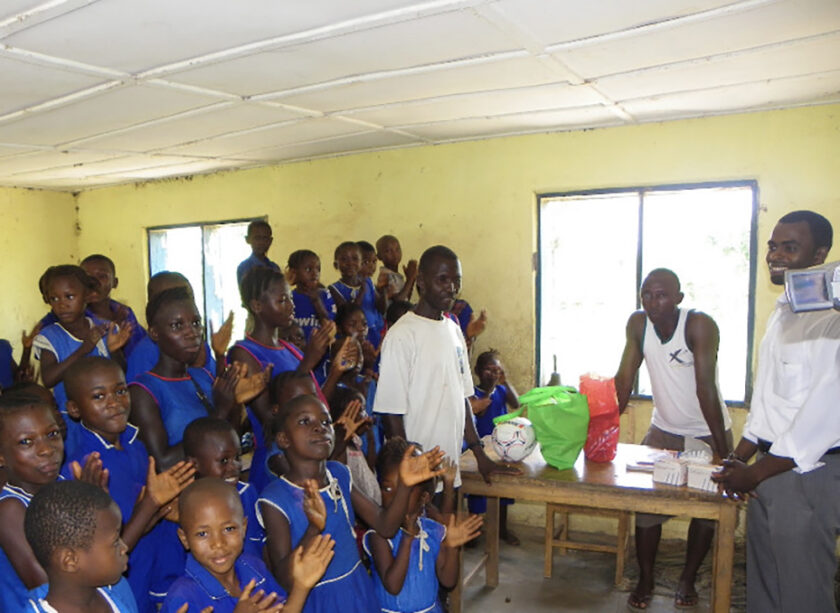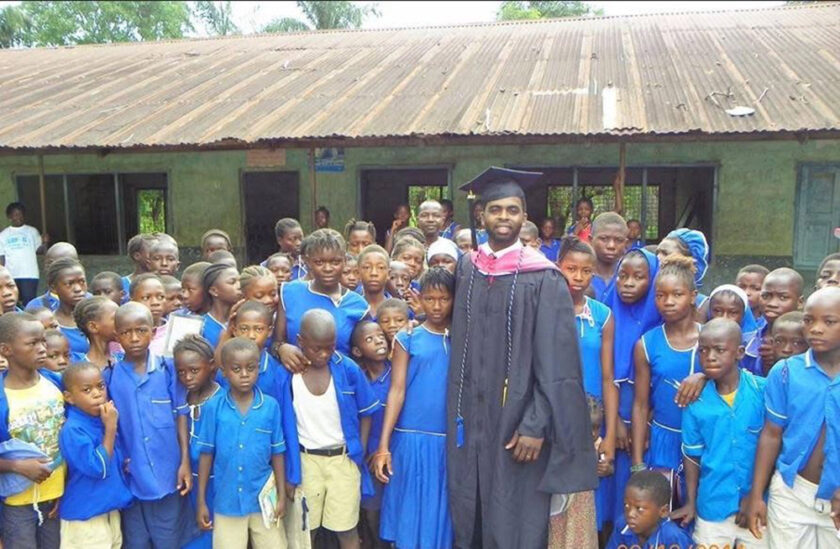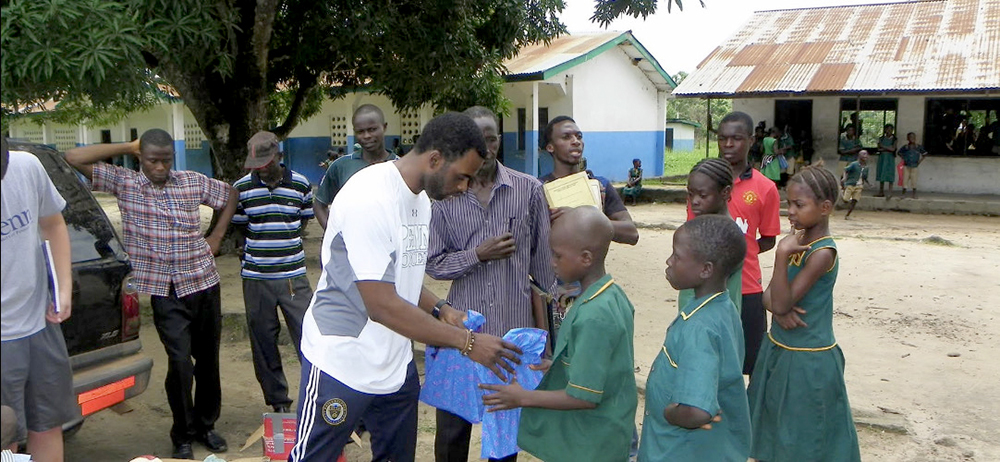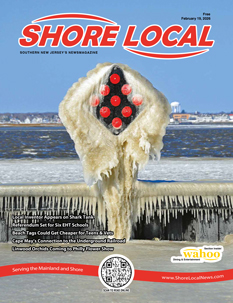Family Tides
Al Saccoh of Egg Harbor Township was just a boy when Sierra Leone erupted into a decade-long civil war. By the time he arrived in America, he knew all too well how transformative — and necessary — education could be.
“For 10 years, we had that brutal, senseless civil war, and I was there throughout all that time, and it broke my heart. I witnessed so much suffering and struggling,” said Saccoh. “When I finally left Sierra Leone in 2000, I lived in Philadelphia with my elder brother. I always wanted to go back to school, but at that time, my education had taken a deep hit because I had been in and out of school for the better part of 10 years.”
Though the war disrupted his education, Saccoh persisted and always looked for ways to give back. He served as a volunteer firefighter in Philadelphia for a decade and earned a master’s degree from the University of Pennsylvania.

Even though an ocean spanned between him and his homeland, his village was never far from his mind.
“I always wanted to go back and do something. I loved the village. I missed those guys, and it took me about 13 or 14 years or so, and I finally returned to Sierra Leone, and I went back to the village, went to my old school. I came back and founded a nonprofit organization with the aim to help students in those schools,” said Saccoh, noting that in the past, they’ve helped renovate the school, among other projects.
“At some point, I was taking students from Penn to go volunteer there in the summer, and I did that for two years, and one of the students at Penn won [an agriculture grant] for the community folks. So, we’ve done some really good work,” explained Saccoh.
Saccoh eventually turned his focus to bridging the digital divide, realizing how important it was for children in his home village to have access to computers. Today, the Egg Harbor Township resident’s nonprofit, the Sierra Leone Children’s Fund, collects old laptops, smartphones and tablets that are refurbished, loaded with educational software and shipped to rural primary schools.
“Now, you could do a whole lot of computer courses online; you don’t actually need an instructor there, but you just need the structure to make sure that you have access to the computers and the basic programs and things like that. And that’s the goal pretty much,” said Saccoh.
Access to computers not only provides more educational opportunities but also helps students develop life-changing skills.

“In my village, education is your only source of really some kind of hope,” he said. “It could change your life. Apart from that, the trajectory of many of these kids is poverty. Their parents are farmers, and farming is labor-intensive. And it’s poor. It’s really poor. It’s substantive farming — whatever you farm, you eat.”
While it’s common for people to set aside old computers or smartphones after upgrading, Saccoh said those discarded devices could “change someone’s life.” If students receive exposure and education and develop skills, they could potentially begin earning an income.
“Those kids could do big things — they just need access to these computers,” he said. “Building a workforce that’s educated has a whole lot of benefit to society.”
Saccoh said they’ve donated about 25 laptops so far — some purchased out of pocket — but it’s a small number compared to the students there. He hopes to not only distribute more laptops to primary students but also expand his efforts to reach secondary students, especially because many of the teens have a strong desire to learn computers.
“I want to get some computers into their school as well and maybe have a computer lab for those guys in the secondary school,” he said.
To scale the project, Saccoh hopes to partner with businesses willing to donate used laptops in bulk, such as companies upgrading their computer systems.
“We would like to work with those companies to see what we could do to make sure that we become the recipient of those laptops rather than throwing them away or taking them to landfills,” he said.
Such partnerships would mean the nonprofit could focus less on acquiring equipment and more on fundraising efforts to cover essential costs like shipping fees or other initiatives. He said businesses could also help support the nonprofit’s work through donations or sponsoring programs.
“They could sponsor some other programs, or they could sponsor just programs for a primary school, secondary school, or for girls — I think that will be tremendously helpful,” he said.
Importantly, Saccoh sees computer literacy as a way to empower girls in Sierra Leone, whom he says are particularly vulnerable.
“I really want to have computer literacy for girls as well because the young girls are much more vulnerable than the boys in villages, and if their parents get to see them learning computers with the prospect of good financial independence or job prospects, then those kids will stay in school,” he said.
He also envisions involving local college students in refurbishing the devices, potentially for college credit and travel abroad opportunities through grants.
“We could help the student apply for those grants, and they could get to travel to Sierra Leone and do some actual good work,” he said.
But individuals can make an impact, too — even if it’s just donating “$5, $10 or $20,” said Saccoh. Anyone with used devices can donate them or even organize a local collection drive.
“It takes a community to build a bigger community, and I’m looking for that support. And I hope people will reach out with suggestions, recommendations, or make a contribution — whatever they can because we’re doing a good job,” he said.
To learn more about the nonprofit, visit slchildren.org.
Madison Russ is an award-winning journalist, copy editor and adjunct professor of communication based in Atlantic County. An Ocean City native, Madison is passionate about telling stories that matter to locals, often spotlighting nonprofits and exploring the area’s vibrant arts scene.


















